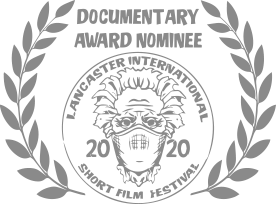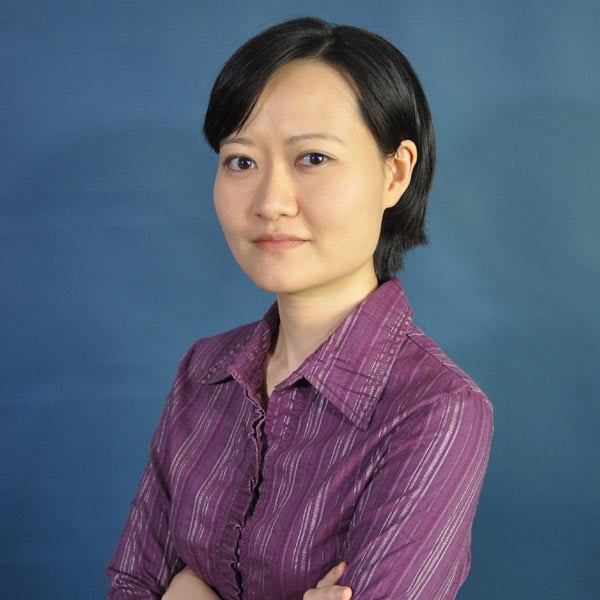BAFTA-Winning Director Explores Animal Testing in Powerful Documentary








Test Subjects, BAFTA-winning director Alex Lockwood's new documentary, explores the pressure on aspiring scientists to experiment on animals in order to earn their diplomas. It premiered on September 20 at Raindance, the U.K.'s largest film festival. PETA served as executive producer.
Seen through the eyes of a trio of former doctoral students as they recall their struggle with the expectations of academia, Test Subjects takes an unflinching look at the deeply personal decisions that these scientists made that ultimately changed the course of their lives and careers.
Test Subjects provides a peek into a world few ever get to see—and what's expected for entry into that exclusive club with its pressure to conform, to question only that which is acceptable to question, and to maintain the status quo, even if it runs contrary to good science. Test Subjects does not turn away.
The three women featured in this documentary share their stories of standing up to entrenched beliefs in the scientific community. See where their work to end animal testing has taken them.

Dr. Frances Cheng
Originally from Taiwan, Frances came to the U.S. for her Ph.D. studies. She was trained in biomedical research using conventional animal models but soon found through her own research that there were significant physiological differences between the animals she was using and humans. She came to learn that these differences are responsible for the high failure rate in human trials of drugs that appeared to work in tests on animals. These failures make animal models unsuitable for modern research needs—she knew that what was true for animals is usually not true for humans.
...
Frances completed her doctoral degree in physiology and biophysics at Case Western Reserve University, with the goal of advocating for animals—especially those in laboratories. In 2015, she joined People for the Ethical Treatment of Animals (PETA), where she now serves as a senior science adviser in the Laboratory Investigations Department.
She works with food and beverage companies, foundations, universities, and government entities to encourage them to stop testing on animals. She has persuaded General Mills, Kellogg Company, House Foods, The Hershey Company, Asahi Group Holdings, and dozens of other big-name brands to stop conducting experiments on animals for their R&D and basic research.
Frances wants anyone on a journey similar to her own to know that they're not alone—and that PETA is here to help.
Read More

Dr. Amy Clippinger
Dr. Amy Clippinger is the director of PETA's Regulatory Testing Department and president of the PETA International Science Consortium Ltd. She received her doctorate in cellular and molecular biology and genetics in 2009 from Drexel University College of Medicine and was a postdoctoral fellow in the Cancer Biology Department at the University of Pennsylvania from 2009 to 2012. Having joined the Science Consortium in 2012, she collaborates with industry, academia, and regulatory agencies to promote robust non-animal toxicity testing approaches.
...
In this capacity, she has organized expert working groups, workshops, webinars, and publications on topics including acute systemic toxicity testing, inhalation toxicity testing, and eye irritation testing. She is a member of the Scientific Advisory Committee on Alternative Toxicological Methods (SACATM), which advises the Interagency Coordinating Committee on the Validation of Alternative Methods (ICCVAM) and the National Toxicology Program Interagency Center for the Evaluation of Alternative Toxicological Methods (NICEATM). She serves on the editorial board of Applied In Vitro Toxicology and is a past president of the Society of Toxicology's In Vitro and Alternative Methods Specialty Section.
In her free time, Amy enjoys life in Philly—trying out new vegan dishes at restaurants, seeing shows, and picking out fresh fruits and veggies at the Rittenhouse Square Farmers' Market on Saturday mornings. She hopes her story will show young scientists that you can have it all—a robust career in the sciences that helps save lives and doesn't harm animals.
Read More

Dr. Emily Trunnell
Atlanta native Dr. Emily Trunnell attended the University of Georgia in Athens for both her undergraduate degree in nutrition science and her doctoral degree in neuroscience. In 2016, immediately after finishing her doctoral research—which involved the use of mice and rats—she went to work for PETA as a research associate and institutional animal care and use committee (IACUC) liaison. IACUCs are oversight bodies charged with ensuring that each institution that uses animals complies with the Animal Welfare Act, the only federal law in the U.S. providing some animals used in experimentation with minimal protections.
...
Emily works to foster positive relationships between IACUCs, which are the last line of defense for animals used in this way, and PETA. She also works with legislators, government agencies, and corporations on policy issues regarding the use of animals in experimentation; liaises with editors of scientific journals to prevent the publication of papers on the most scientifically flawed and cruel experiments; and provides scientific background for some of PETA's eyewitness laboratory investigations.
When she's not advocating for animals in laboratories, Emily enjoys hiking, cooking, and spending time with her family. In 2018, she helped organize the first all-vegan event in Knoxville, Tennessee: the Scruffy City Vegan Fest.
Emily bears no ill feelings toward any of her University of Georgia mentors or colleagues. She understands that the problems with animal experimentation are systemic—that they're inherent in the value system of academia—and that no one person or university is any more to blame than the next. By speaking out, she hopes to help other trainees and young investigators have the courage to be the "squeaky wheels" who change the system for the better.
Read More
If you’ve been told that you must use animals to obtain your graduate degree but feel there should be a better way, we can help. Please contact us at [email protected].